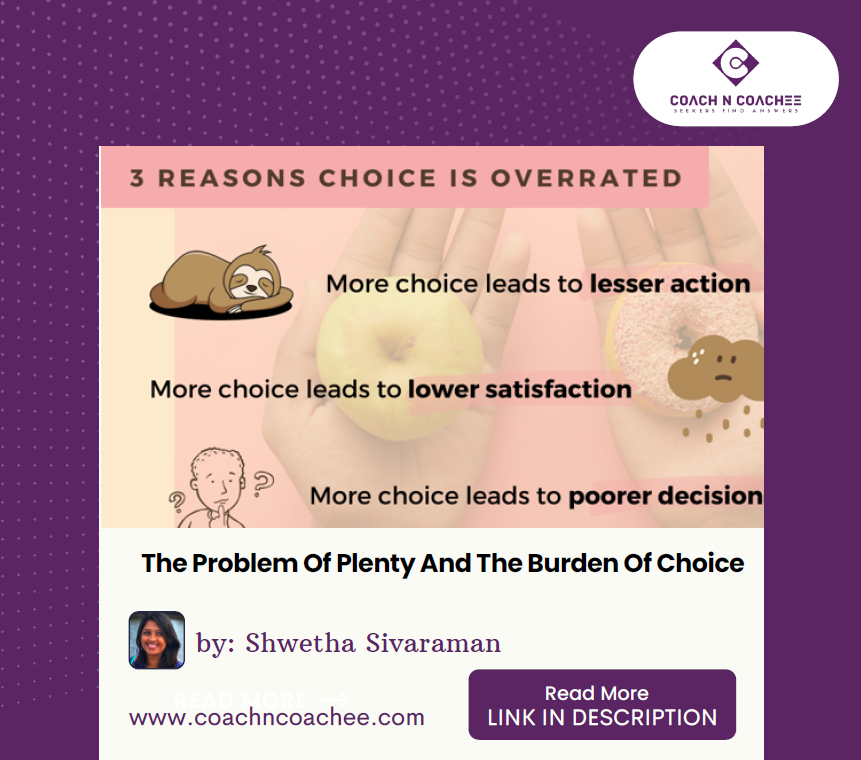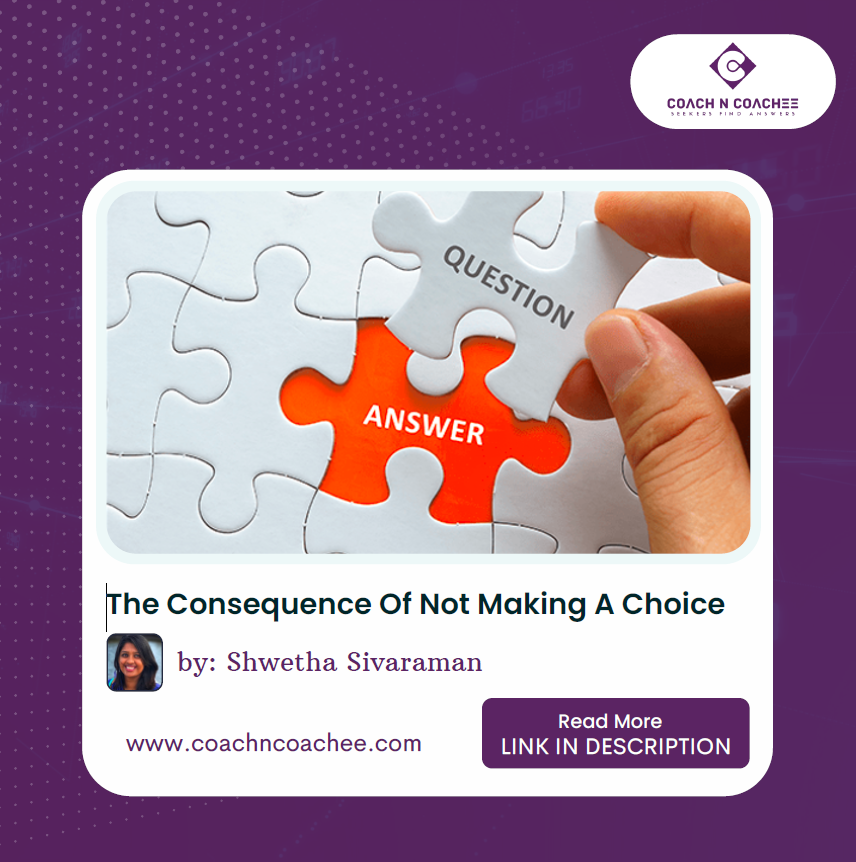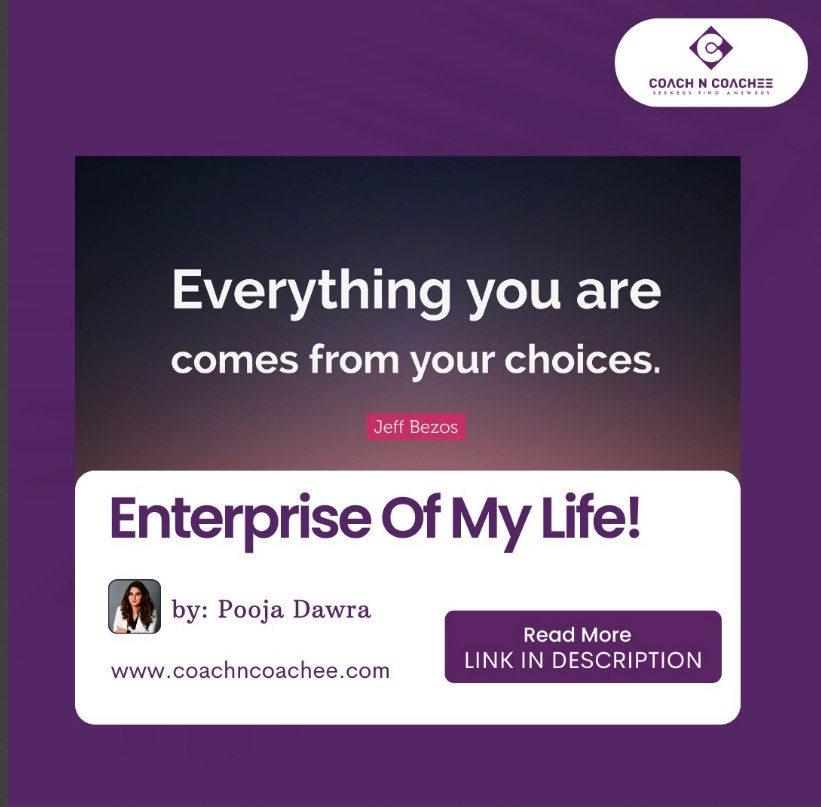
The Problem of Plenty and the Burden of Choice
From choosing a bar of soap to career alternatives, professionals today face a problem, unlike our earlier generations.
We face the problem of plenty and the burden of choice.
Our parents growing up had limited career opportunities and a limited reserve of financial savings that offered enough constraints to make their peace with the job they had, and they held onto it for 40 years or their entire career.
But that might as well be a tale of fiction for those in middle management roles today.
Today’s diverse career options combined with the internet acting as a force multiplier opens up many possibilities and paths that lead to success. While this is a utopian dream for the previous generation, we (especially those born in the 90s and later) are daunted by the sheer variety of options, and it’s paralysing us from moving forward.
Should we leave the steady paying job to start something up on our own? Or join a unicorn startup, accelerate career growth, and accumulate wealth? Should we diversify and broaden our domain or niche down and become even more of a specialist within the industry?
As an ICF(ACC) Coach who works with many successful women struggling to choose what next in their mid-careers, this is a typical pattern I observe – feeling lost in a sea of options and staying stuck in limbo for fear of making the wrong choice.
The side-effects of the problem of plenty
With plenty of equally attractive but no obvious career choices, we face many side effects:
Confusion
When faced with so many options, what naturally follows is confusion. We find ourselves confused about what’s next for us, where we are headed, and what, if any, is the shortest path to success.
Fear
The longer we swim in the ocean of options, the lower our self-confidence goes and the higher our fear gets. We feel less and less confident about what’s the right thing for us and put more pressure on ourselves to get it right now that we’ve spent so much time ruminating on it.
Stagnation
We feel stuck. We keep wondering if the grass is greener on the other side and fail to take a bet and stay in the status quo longer. We put off decision making till we are 100% sure and end up never having the courage to take that leap.
In behavioural economics, this phenomenon is called “choice overload.” Too many options paralyse us from making no decision or sticking to the default option as that’s less risky.
3 reasons why more choice is overrated
More choice leads to lesser action
Professor Sheena Iyengar from Columbia University conducted a study on choice overload and identified that while “the presence of choice might be appealing as a theory; in reality, people might find more and more choice to actually be debilitating.” Too many options overwhelm us and make us avoid choosing.
So when faced with too many options that our minds cannot comprehend and make a decision, we choose the safe alternative not to make a choice and not take any action.
However, not taking action or not choosing is a choice in itself. More on that here
More choice leads to poorer decisions
When our minds are overwhelmed with options, in some cases, we tend to impulsively choose something or inconsistently make decisions that impact us in the long run. We make decisions in haste without considering all available choices, leading to poor quality decision-making with wide-reaching consequences.
More choice leads to lower satisfaction
This is a classic example of FOMO (Fear of Missing Out) in action. When there are more choices, there is constant wonderment about the unlived life on the missed out alternate path. If we decide and move forward by chance, we find ourselves constantly brooding in dissonance on the path we’ve left behind.
What if the other option was better?
This causes persistent dissatisfaction. We cannot shake off this dissonance even if the decision we’ve taken has led us to a reasonably challenging role, and we are making progress in our careers.
Before we go into strategies to navigate over choice, Let’s pause for a reality check
Overwhelm about what next in our career can come from two reasons:
- Choice overload or the problem of plenty we’ve been talking about
- Information asymmetry or the problem of too little information
Before going any further, reassess the career crossroads you find yourself facing. Is the root cause of the problem too many options and lack of clarity on making a better choice? Or is it that you have too little information about the preferences ahead that makes it harder for you to make a conscious choice?
If it’s the latter, pause here and go back to get all the information you need to make the right career choice. If it’s a problem of too many options, here are my strategies to deal with choice overload.
But first, let’s get wishful thinking out of the way.
Less choice is no longer an option
We are not going to go back to the simpler times of Henry Ford where “any customer can have a car painted any colour that he wants, so long as it is black.”
The choices are here to stay; we need to learn how to make choices and move forward continuously in the world of over choice.
5 strategies to navigate over choice in careers
These are some strategies I’ve used for myself and my clients to help ease the burden of choice, and I hope they help you get some clarity on what’s suitable for you:
#Strategy1 Elimination: Make a list of non-negotiables and eliminate options that don’t meet the cut.
The simplest way to manage choice overload is to reduce the number of options in the running. Spending time to get clarity in knowing what you don’t want can help eliminate options that are not an option for you.
Go back in time to identify parameters to help you determine what you don’t want. Explore all the roles you’ve held over the years in your careers and list down things that are non-negotiable to you. It could be as straightforward as no working Saturdays to something vague and ambiguous as wanting to work in a tech-first or forward-looking industry.
#Strategy2 Self-awareness – Expand self-knowledge to identify your core values and beliefs
The choice overload we face in our careers is not just about “What’s right?” but “What’s right for us?” For us, is the critical variable.
We are unique, and our values, beliefs, internal drivers are different from others and directly influence whether a career trajectory is good for us. Spending time understanding ourselves and identifying our core values and beliefs can help us select what’s suitable for us.
For example, say you are passionate about conserving and preserving the environment. Even if you’re offered the best role in an Oil and Gas Company that’s infamous for its sheer lack of planet consciousness is not an option cause it’s not aligned with your core beliefs or values.
Identifying our values helps us choose career transitions that are aligned to who we truly are.
#Strategy3 Experimentation – Try your hand at many things to know what fits
You cannot know something unless you’ve experimented with something.
For example, you might be passionate about baking and want to create a venture around your baking skills. But if you’ve never tried to market or promote your baking products, you’ll never know if that works for you.
You don’t have to quit your current position to experiment. Pick up career alternatives you’d like to experiment with and do it pro-bono when you have time to spare or on weekends. By doing it pro Bono, there’s no conflict of interest with your full-time job, and by doing it in your spare time, it won’t affect your job performance.
Experimenting will give you data points that no hypothetical examination of choices and can help make better decisions in the long run.
#Strategy4 Retrospection – Shift your timeline to 10 years from now and explore how you’d want to have navigated this dilemma
Often our current perspective is limited, narrow, and restricted to what we know today. Shifting the timeline to 10 or 20 years from now and looking back and help us reflect with a fresh pair of lenses.
When I do this with my clients, an overlooked or undervalued variable suddenly comes into the picture that tips the scales favourably or against some choices.
For example, today, wealth and job titles might seem the most valuable parameter. Reflecting from a longer-term perspective might make an individual realise that a career is just one part of life. Having a work-life balance that allows sufficient quality time with family will be more critical in the long run. Such clarity speeds up the process and improves the quality of decisions.
#Strategy5 Concede – Come to terms with the fact that there will always be an unlived life
Life is a trade-off. We have limited resources (time, energy, money) and innumerable ways to spend them. So any decision we make, anything we say yes to, means we say no to all the other equally attractive options.
The word decide is derived from the Latin word “decidere”, which means to cut off or slice away alternatives. So the act of deciding is to reject possible options.
As an ambitious high achiever, I’ve often found myself wanting it all. I believed that if I were more productive more efficient, I’d be able to do it all. But that’s just us trying to fool ourselves and avoid facing the inevitable truth of our lives that we are constrained by time, energy, and resources, and cannot have it all no matter what.
Take the choice and make it right
We can overcomplicate the process of making a choice as much as we want, but the truth is that there is no right or wrong decision in life. Every decision we make takes us on a unique journey and what we make of it is in our hands.
As I always say, “There is no right or wrong answer. You take a decision and make it right.”
Here’s your invitation to stop being paralysed by choice overload and make the best career decisions to have a fulfilling and enriching professional career.










